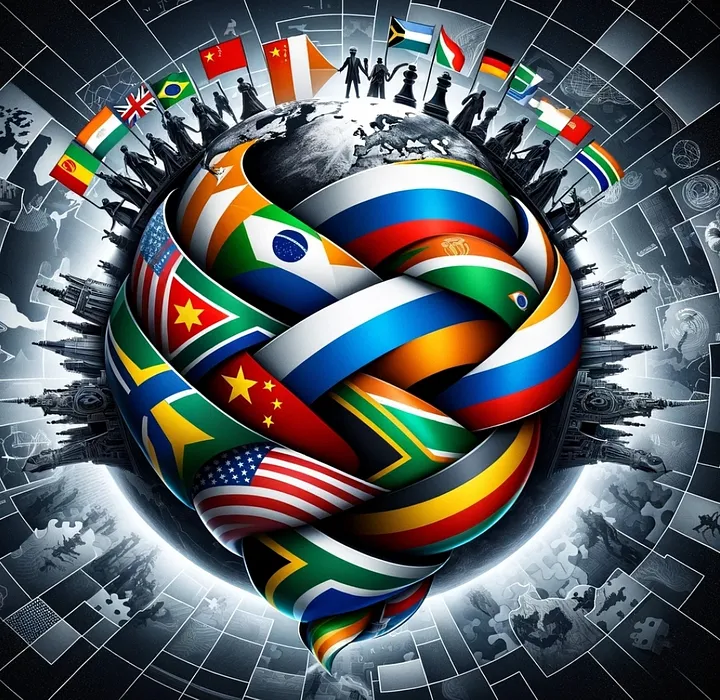In a significant geopolitical shift, the BRICS bloc, already a substantial force in global politics and economics, welcomed five new members — Egypt, Ethiopia, Iran, Saudi Arabia, and the United Arab Emirates, effective January 1, 2024. This expansion reflects a growing need for diversified global power centers and marks a notable shift in the world’s economic landscape.
The Rise of the Global South
Originally formed by Brazil, Russia, India, China, and South Africa, BRICS has been a platform for emerging economies and developing countries. The inclusion of the new members is a strategic move, recognizing their economic potential and strategic positions within their regions. This move indicates a collective shift towards strengthening multilateralism for equitable global development and security, challenging the traditional, West-centric global order.
A Counterbalance to Western Influence
Saudi Arabia’s decision to join BRICS, despite its strong ties with the U.S., signals a pursuit of a more diversified foreign policy. This move aligns with the broader BRICS objective of serving as a counterweight to Western influence, particularly in the context of the Global South. This expansion of BRICS could potentially amplify its role as a champion for emerging economies, creating new dynamics in global economic and political affairs.
Economic and Political Implications
The expanded BRICS now represents a colossal collective with over 2.5 billion people and a combined GDP exceeding $16 trillion. This significant increase in economic and political clout is expected to reshape global economic and political dynamics profoundly. The move also highlights the growing appeal of an alternative to the US-led “rules-based order,” as countries increasingly seek to align with partners sharing similar interests and developmental goals.
The Future Landscape
Under Russia’s 2024 chairmanship, BRICS plans to host numerous events, emphasizing strengthening ties and joint development among member states. These developments could lead to new economic partnerships and political alliances, potentially altering the global balance of power. The expanded BRICS, with its diverse and powerful members, could play a pivotal role in shaping the future of international relations, particularly in the context of the Global South.
Reference Material
For more in-depth analysis and details, you can refer to the original sources:
- Reuters: Saudi Arabia officially joins BRICS bloc
- Wikipedia: BRICS
- Daily News Egypt: Egypt, Iran, Saudi Arabia, UAE, Ethiopia formally join BRICS












